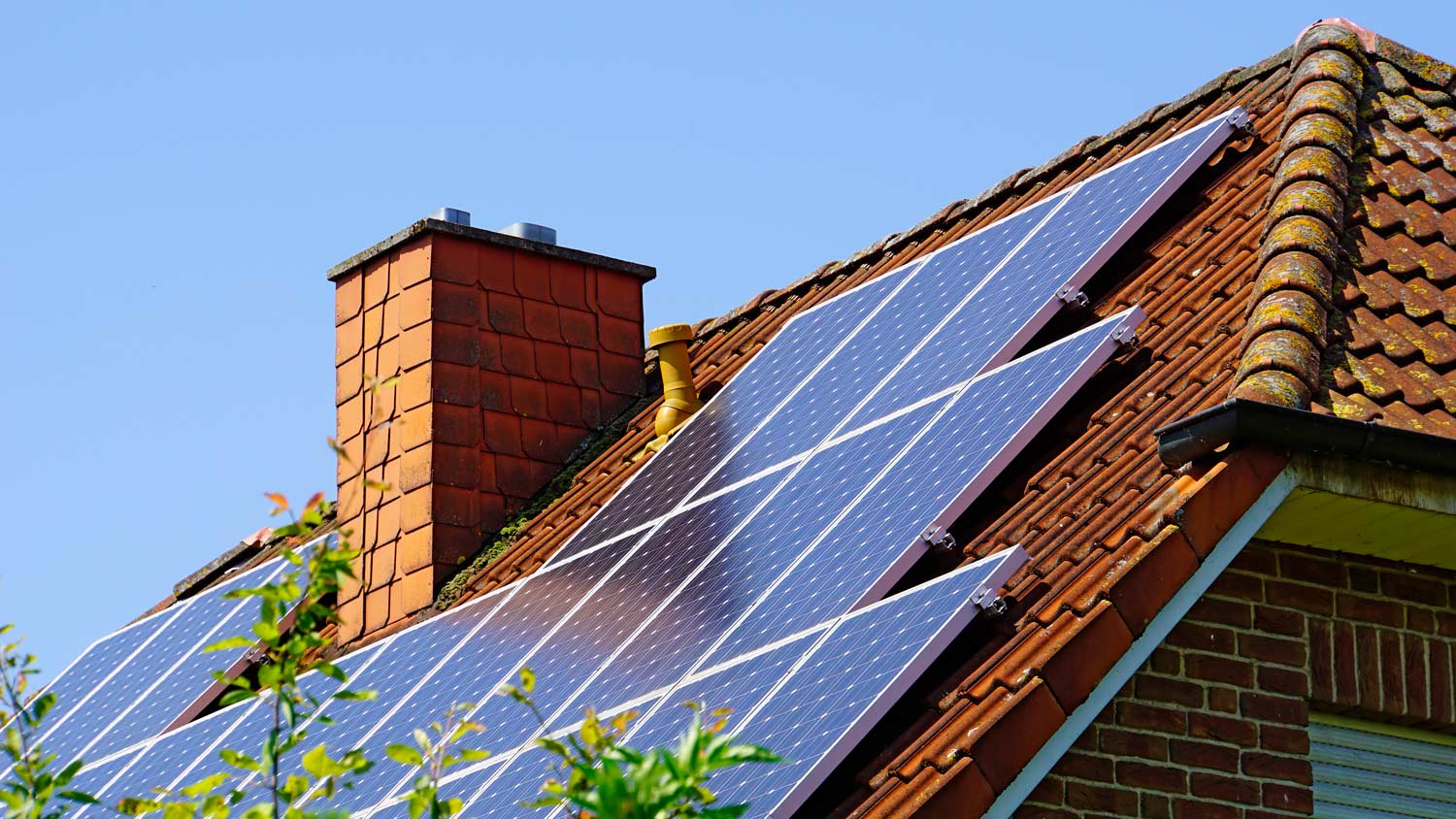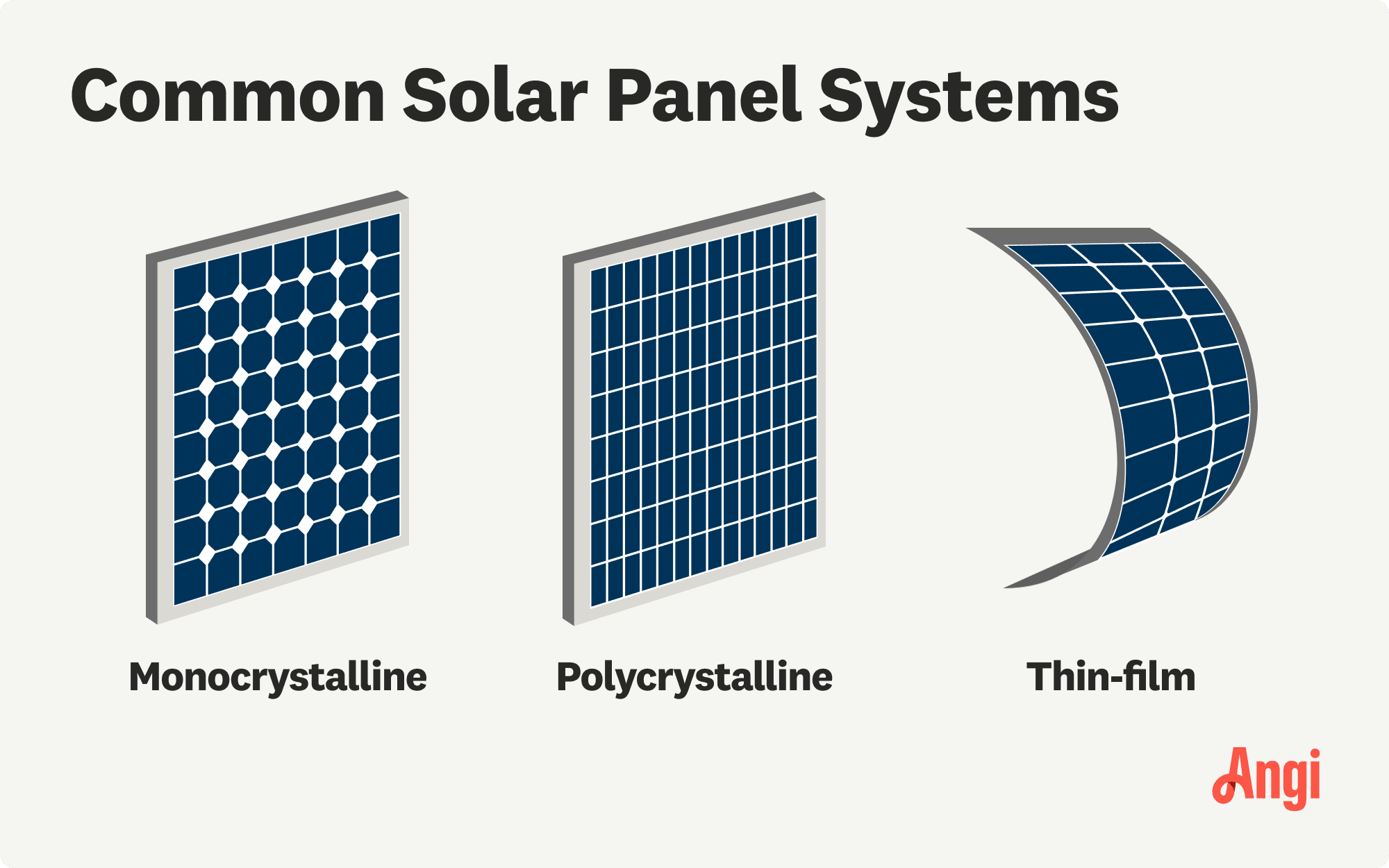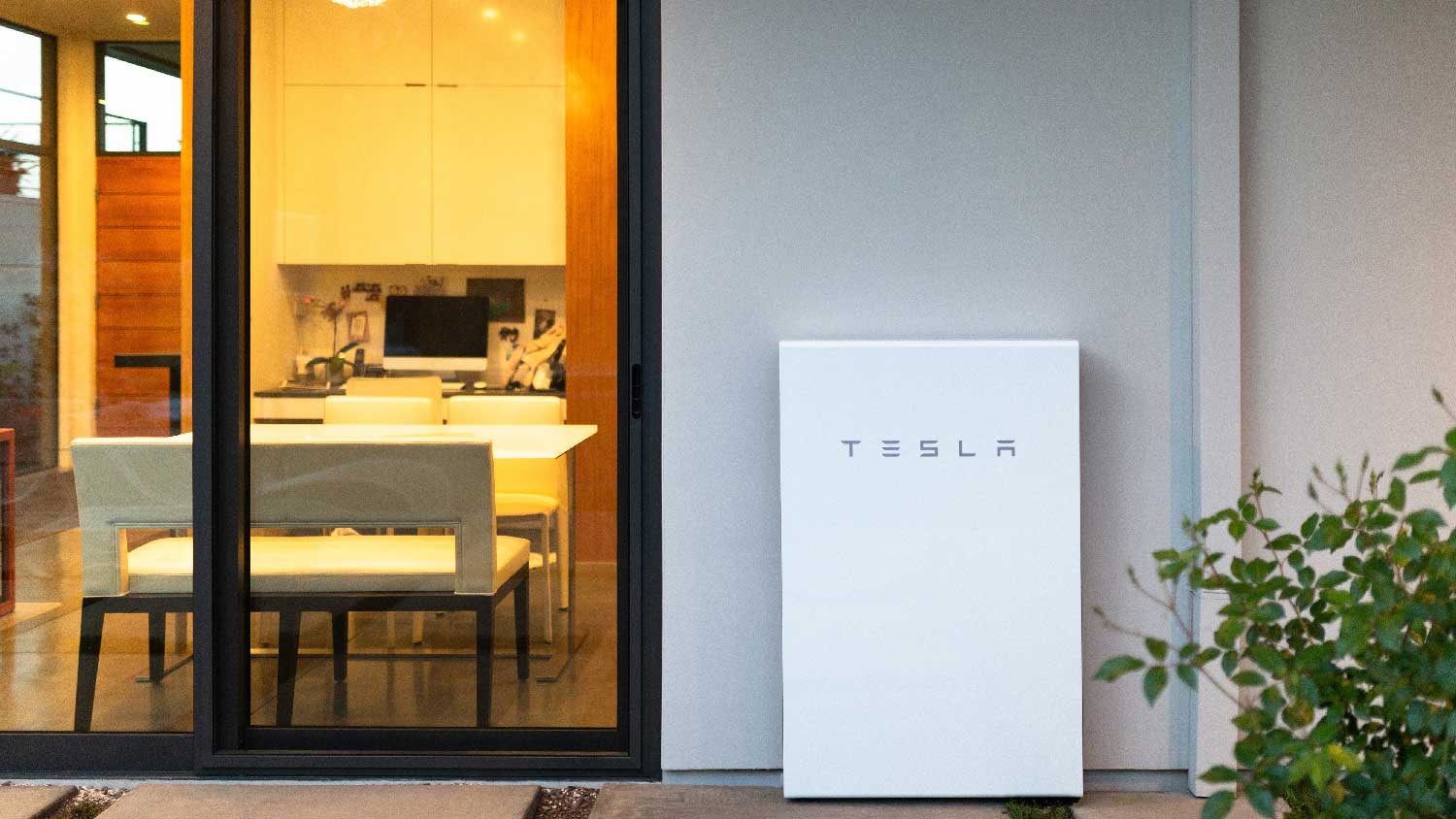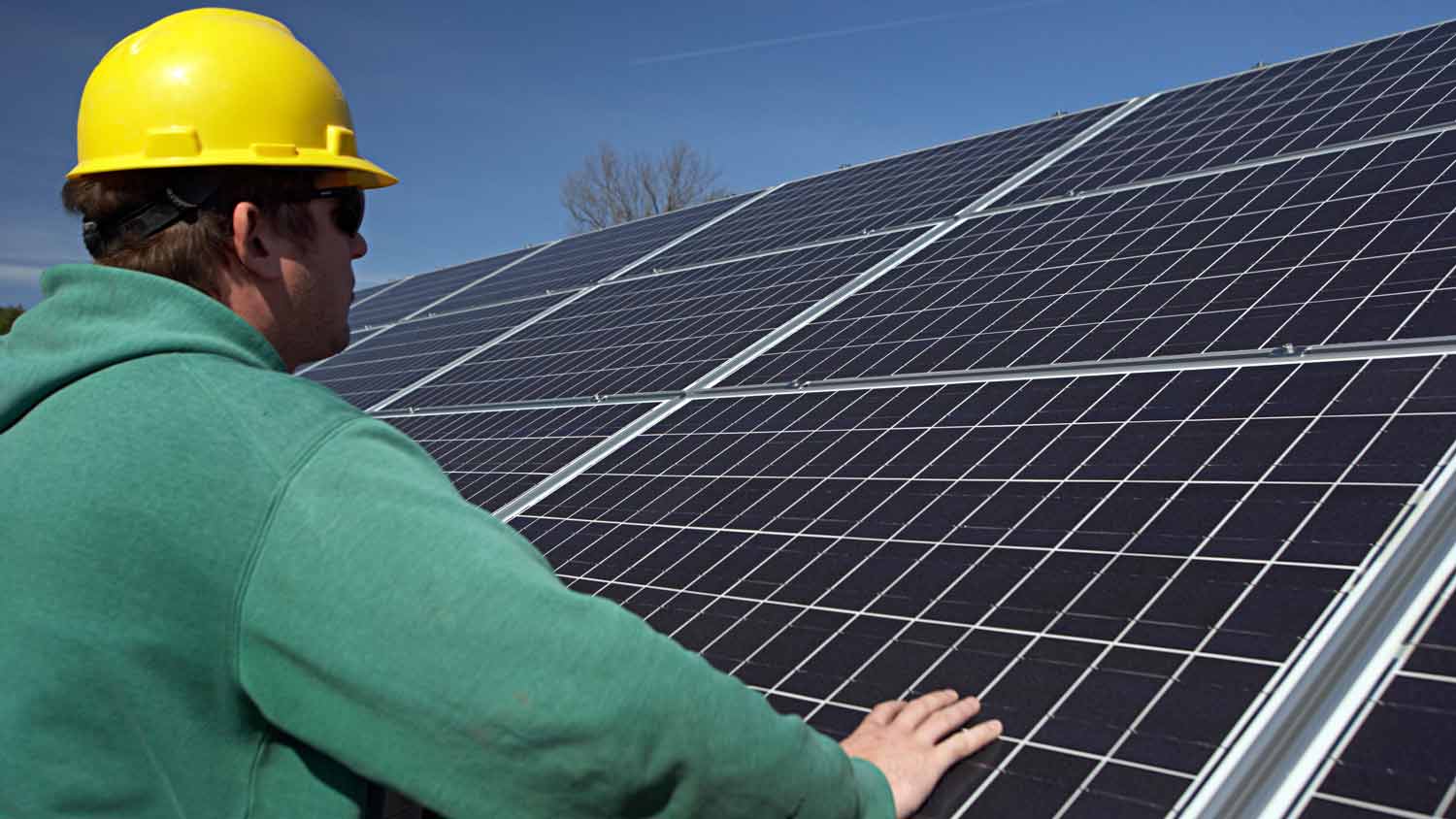
Solar battery costs depend on the size of your system, labor, and capacity. Learn how much you could pay for batteries for home solar systems.
Installing solar panels in Charlotte, North Carolina, averages $36,291, though it ranges between $25,996 and $46,586 based on system size, panel type, wattage, and more. A solar panel installer can assess your roof and install your system.


Solar projects in Charlotte require a licensed electrician and solar contractor.
All three types of solar panels can work in Charlotte’s climate.
North Carolina offers a property tax exemption for solar panel installations.
Duke Energy offers a rebate to customers who pair their system with a battery.
If you’re thinking about going solar in Charlotte, North Carolina, you have about 215 sunny days a year to work with. Although the city’s cost of living is on par with the national average, panel costs are 29% higher. A solar panel installation in Charlotte averages $36,291 and ranges between $25,996 and $46,586.
Despite the high costs, many homeowners are opting for renewable energy to save on future utility bills. Here’s how factors like the system size, panel type, hardware, and more will affect your project’s budget.
Here are the major cost factors to consider when planning your solar installation in Charlotte, North Carolina.
The size of the solar system will impact your solar panel installation costs. The larger the output, the more you’ll pay. Most homes need 6- to 10-kW (kilowatt) systems, which work out to anywhere from 15 to 34 panels, depending on the wattage.
The table below shows average costs based on the size of your solar system:
| Solar System Size (kW) | Average Cost |
|---|---|
| 5 | $16,100–$22,525 |
| 6 | $19,300–$27,100 |
| 7 | $22,525–$31.525 |
| 8 | $22,650–$36,100 |
| 9 | $28,950–$40,550 |
| 10 | $32,175–$45,100 |
| 11 | $35,400–$49,550 |
| 12 | $38,600–$54,100 |

When choosing the type of solar panel that works best for your home, consider three main factors: efficiency, life expectancy, and design. In Charlotte, where average summer temperatures don’t exceed 90 degrees Fahrenheit, all three types of panels will work. However, if there’s limited roof space or shade, consider the more efficient panels. Here’s how the type of solar panel can affect your cost:
| Type of Solar Panel | Average Cost per Watt | Lifespan (Years) | Pros | Cons |
|---|---|---|---|---|
| Monocrystalline | $1–$1.50 | 40 | Most efficient | Highest cost |
| Polycrystalline | $0.90–$1 | 25–30 | Works well in temperate weather | Less efficient than monocrystalline |
| Thin film | $0.70–$1 | 10–20 | Efficient in low light | Short lifespan, requires the most space |
On average, most homes need anywhere from 20 to 25 panels to fully power a home, but this can range from as few as 15 to as many as 34. How many panels you need depends on the number of watts per panel, your energy consumption, and the efficiency of your panels. Your average solar panel will have an output of anywhere from 250 to 400 watts. The dimensions of your solar panels will also depend on the power output.
Your contractor can recommend the right hardware for your solar installation. The more advanced the technology, the higher the up-front cost. The type of mount will affect the cost as well:
Fixed mounts: $10–$15 per mount
Adjustable mounts: $50 per mount
Tracking: $500–$3,000 or more per mount (these mounts can self-track sunlight, leading to up to 45% more energy production)
Other materials you will need for a solar energy system include the parts in the table below.
| Hardware | Average Cost |
|---|---|
| String inverter | $1,000–$3,000 each |
| Microinverters | $150–$300 each |
| Power optimizer | $80–$150 each |
| Solar battery | $400–$15,000 |
Inverter and microinverters: Convert direct current (DC) electricity to alternating current (AC) electricity
Optimizer: Regulates currents so each panel is more energy efficient and prevents power loss
Battery: Stores excess energy from the system so homeowners can use it at night or during a power outage
Some systems use a single solar inverter or several microinverters that convert DC to AC electricity. Materials like the wiring and battery are often grouped with the package price unless you opt for add-on services.
Hiring an experienced pro to install your solar panels is key to making the most of this exciting new home addition. Budget $0.50 per watt for labor when you hire a solar panel installer in Charlotte, North Carolina. This number doesn’t include permits or the cost of additional technology, such as special mounts, tiles, or shingles.
Solar panel installation does require electrical work. Though many solar panel installation companies have a licensed electrician on staff who specializes in solar panels, roofing contractors sometimes subcontract an electrician. The average cost of hiring an electrician is $60 to $120 per hour.
Your solar contractor will apply for and secure the necessary permits for solar panel installation in Charlotte, such as the Mecklenburg County Building Permit and the City of Charlotte LDIRL permit. Additionally, a licensed electrical contractor must submit an application for an electrical permit.
If your roof has structural issues, it will need to be inspected by a pro. Solar panel inspections cost about $150 to $350.
In North Carolina, where there has been a big boom in solar panel installations, homeowners are more likely than ever to consider solar panels a desirable amenity. When you install solar panels, your home value will increase by 4.1%, as estimated by a study from Zillow. Furthermore, the ROI for the solar panels is 35%, making this project even more appealing. To get the most benefit out of your investment, stay up to date on your solar panel maintenance with regular cleaning and inspections.
Once your solar panels are paid off, they're officially your property. If you move, you can reinstall them on a new rooftop. Alternatively, they can increase the value of your home by 3% to 4% and attract more buyers. They can also give your property a competitive edge in a buyers’ market.
The best way to save money on the up-front costs of installing solar panels is to take advantage of the Solar Investment Tax Credit (ITC) before it ends on December 31, 2025. The ITC allows homeowners to claim a federal tax credit equal to 30% of the price of their solar panel system installation.
For example, if your solar panel system costs $30,000 before the federal tax credit, you can save around $9,000. However, to benefit from this credit, your solar system has to be installed and working before the federal incentive ends.
The ITC, also known as the Residential Clean Energy Credit, was originally extended through 2032 as part of the Inflation Reduction Act. However, new federal legislation (the Big Beautiful Bill Act) signed into law on July 4, 2025, terminated the credit early. The Solar Energy Industries Association® (SEIA) outlines the high-level policy changes and restrictions on energy tax credits.
Additionally, the extra power you choose not to store in a battery can be sent back to the grid. Your local utility company will compensate you for that power, but the amount will vary. You can check the Utility Rate Database on Open EI to estimate how much you can expect to receive for generating excess energy.
There are some incentives in Charlotte for homeowners with solar panels, so make sure to look into whether you qualify. Duke Energy customers can take advantage of rebates and credits. For example, the PowerPair℠ rebate is a one-time incentive of up to $9,000 for eligible solar panel installations paired with a battery.
A traditional net metering program is no longer available for new solar installations if Duke Energy is your electric company. They’re offering a Bridge Rate, which requires you to pay a monthly minimum bill. You’ll get credits for extra electricity that your panels generate, but the rate for the electricity depends on time-of-use (TOU) rates. TOU rates fluctuate depending on the demand for electricity throughout the day. If you don’t have Duke Energy, contact your utility company and ask if there are net metering opportunities.
Additionally, North Carolina has a property tax exemption for solar, which means your property taxes won’t go up when you install your new solar panel system.
Home is the most important place on earth, which is why Angi has helped more than 150 million homeowners transform their houses into homes they adore. To help homeowners with their next project, Angi provides readers with the most accurate cost data and upholds strict editorial standards. We survey real Angi customers about their project costs to develop the pricing data you see, so you can make the best decisions for you and your home. We pair this data with research from reputable sources, including the U.S. Bureau of Labor Statistics, academic journals, market studies, and interviews with industry experts—all to ensure our prices reflect real-world projects.
Want to help us improve our cost data? Send us a recent project quote to [email protected]. Quotes and personal information will not be shared publicly.
From average costs to expert advice, get all the answers you need to get your job done.

Solar battery costs depend on the size of your system, labor, and capacity. Learn how much you could pay for batteries for home solar systems.

Discover the Tesla Powerwall installation cost, including average prices, cost factors, and tips to help homeowners budget and save on their Powerwall project.

Get a detailed estimate of solar farm costs. Learn about average prices, key cost factors, and ways to save when planning your solar farm project.

Comparing solar quotes doesn’t have to feel like an overpriced guessing game. Find out how to properly compare your solar options here.

Find out how much it costs to remove solar panels, including average prices, key cost factors, and tips to save money on your solar panel removal project.

Solar panels are both energy- and cost-saving additions to your home. Use this guide to learn some solar panel cleaning tips to keep them operating efficiently.